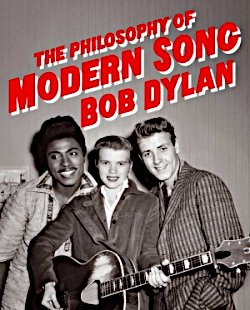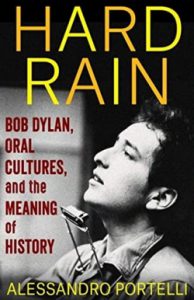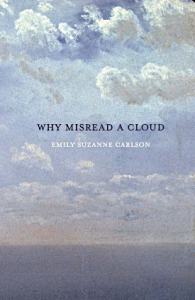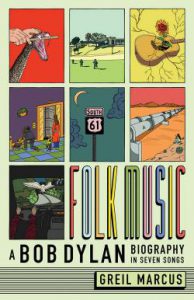Fleurs du Mal Magazine


Or see the index

Voyages
I
Above the fresh ruffles of the surf
Bright striped urchins flay each other with sand.
They have contrived a conquest for shell shucks,
And their fingers crumble fragments of baked weed
Gaily digging and scattering.
And in answer to their treble interjections
The sun beats lightning on the waves,
The waves fold thunder on the sand;
And could they hear me I would tell them:
O brilliant kids, frisk with your dog,
Fondle your shells and sticks, bleached
By time and the elements; but there is a line
You must not cross nor ever trust beyond it
Spry cordage of your bodies to caresses
Too lichen-faithful from too wide a breast.
The bottom of the sea is cruel.
II
–And yet this great wink of eternity,
Of rimless floods, unfettered leewardings,
Samite sheeted and processioned where
Her undinal vast belly moonward bends,
Laughing the wrapt inflections of our love;
Take this Sea, whose diapason knells
On scrolls of silver snowy sentences,
The sceptred terror of whose sessions rends
As her demeanors motion well or ill,
All but the pieties of lovers’ hands.
And onward, as bells off San Salvador
Salute the crocus lustres of the stars,
In these poinsettia meadows of her tides,–
Adagios of islands, O my Prodigal,
Complete the dark confessions her veins spell.
Mark how her turning shoulders wind the hours,
And hasten while her penniless rich palms
Pass superscription of bent foam and wave,–
Hasten, while they are true,–sleep, death, desire,
Close round one instant in one floating flower.
Bind us in time, O Seasons clear, and awe.
O minstrel galleons of Carib fire,
Bequeath us to no earthly shore until
Is answered in the vortex of our grave
The seal’s wide spindrift gaze toward paradise.
III
Infinite consanguinity it bears–
This tendered theme of you that light
Retrieves from sea plains where the sky
Resigns a breast that every wave enthrones;
While ribboned water lanes I wind
Are laved and scattered with no stroke
Wide from your side, whereto this hour
The sea lifts, also, reliquary hands.
And so, admitted through black swollen gates
That must arrest all distance otherwise,–
Past whirling pillars and lithe pediments,
Light wrestling there incessantly with light,
Star kissing star through wave on wave unto
Your body rocking!
and where death, if shed,
Presumes no carnage, but this single change,–
Upon the steep floor flung from dawn to dawn
The silken skilled transmemberment of song;
Permit me voyage, love, into your hands …
IV
Whose counted smile of hours and days, suppose
I know as spectrum of the sea and pledge
Vastly now parting gulf on gulf of wings
Whose circles bridge, I know,
(from palms to the severe
Chilled albatross’s white immutability)
No stream of greater love advancing now
Than, singing, this mortality alone
Through clay aflow immortally to you.
All fragrance irrefragably, and claim
Madly meeting logically in this hour
And region that is ours to wreathe again,
Portending eyes and lips and making told
The chancel port and portion of our June–
Shall they not stem and close in our own steps
Bright staves of flowers and quills today as I
Must first be lost in fatal tides to tell?
In signature of the incarnate word
The harbor shoulders to resign in mingling
Mutual blood, transpiring as foreknown
And widening noon within your breast for gathering
All bright insinuations that my years have caught
For islands where must lead inviolably
Blue latitudes and levels of your eyes,–
In this expectant, still exclaim receive
The secret oar and petals of all love.
V
Meticulous, past midnight in clear rime,
Infrangible and lonely, smooth as though cast
Together in one merciless white blade–
The bay estuaries fleck the hard sky limits.
–As if too brittle or too clear to touch!
The cables of our sleep so swiftly filed,
Already hang, shred ends from remembered stars.
One frozen trackless smile … What words
Can strangle this deaf moonlight? For we
Are overtaken. Now no cry, no sword
Can fasten or deflect this tidal wedge,
Slow tyranny of moonlight, moonlight loved
And changed … “There’s
Nothing like this in the world,” you say,
Knowing I cannot touch your hand and look
Too, into that godless cleft of sky
Where nothing turns but dead sands flashing.
“–And never to quite understand!” No,
In all the argosy of your bright hair I dreamed
Nothing so flagless as this piracy.
But now
Draw in your head, alone and too tall here.
Your eyes already in the slant of drifting foam;
Your breath sealed by the ghosts I do not know:
Draw in your head and sleep the long way home.
VI
Where icy and bright dungeons lift
Of swimmers their lost morning eyes,
And ocean rivers, churning, shift
Green borders under stranger skies,
Steadily as a shell secretes
Its beating leagues of monotone,
Or as many waters trough the sun’s
Red kelson past the cape’s wet stone;
O rivers mingling toward the sky
And harbor of the phoenix’ breast–
My eyes pressed black against the prow,
–Thy derelict and blinded guest
Waiting, afire, what name, unspoke,
I cannot claim: let thy waves rear
More savage than the death of kings,
Some splintered garland for the seer.
Beyond siroccos harvesting
The solstice thunders, crept away,
Like a cliff swinging or a sail
Flung into April’s inmost day–
Creation’s blithe and petalled word
To the lounged goddess when she rose
Conceding dialogue with eyes
That smile unsearchable repose–
Still fervid covenant, Belle Isle,
–Unfolded floating dais before
Which rainbows twine continual hair–
Belle Isle, white echo of the oar!
The imaged Word, it is, that holds
Hushed willows anchored in its glow.
It is the unbetrayable reply
Whose accent no farewell can know.
Hart Crane
(1889 – 1932)
Voyages
• fleursdumal.nl magazine
More in: Archive C-D, Archive C-D, Crane, Hart
The Philosophy of Modern Song is Bob Dylan’s first book of new writing since 2004’s Chronicles: Volume One—and since winning the Nobel Prize for Literature in 2016.
 Dylan, who began working on the book in 2010, offers his extraordinary insight into the nature of popular music.
Dylan, who began working on the book in 2010, offers his extraordinary insight into the nature of popular music.
He writes over sixty essays focusing on songs by other artists, spanning from Stephen Foster to Elvis Costello, and in between ranging from Hank Williams to Nina Simone.
He analyzes what he calls the trap of easy rhymes, breaks down how the addition of a single syllable can diminish a song, and even explains how bluegrass relates to heavy metal.
These essays are written in Dylan’s unique prose. They are mysterious and mercurial, poignant and profound, and often laugh-out-loud funny. And while they are ostensibly about music, they are really meditations and reflections on the human condition.
Running throughout the book are nearly 150 carefully curated photos as well as a series of dream-like riffs that, taken together, resemble an epic poem and add to the work’s transcendence.
In 2020, with the release of his outstanding album Rough and Rowdy Ways, Dylan became the first artist to have an album hit the Billboard Top 40 in each decade since the 1960s.
The Philosophy of Modern Song contains much of what he has learned about his craft in all those years, and like everything that Dylan does, it is a momentous artistic achievement.
Bob Dylan has released thirty-nine studio albums, which collectively have sold over 125 million copies around the world. He won the Nobel Prize in Literature and has been awarded the French Legion of Honor, a Pulitzer Prize Special Citation, and the Presidential Medal of Freedom, the country’s highest civilian honor. His memoir, Chronicles: Volume One, spent a year on the New York Times bestseller list.
The Philosophy of Modern Song
by Bob Dylan
Publisher: Simon & Schuster
November 1, 2022
Language: English
Hardcover
352 pages
ISBN-10: 1451648707
ISBN-13: 978-1451648706
$22.50
• fleursdumal.nl magazine
More in: - Book News, - Bookstores, Archive C-D, Archive C-D, AUDIO, CINEMA, RADIO & TV, Bob Dylan, Dylan, Bob

At Melville’s Tomb
Often beneath the wave, wide from this ledge
The dice of drowned men’s bones he saw bequeath
An embassy. Their numbers as he watched,
Beat on the dusty shore and were obscured.
And wrecks passed without sound of bells,
The calyx of death’s bounty giving back
A scattered chapter, livid hieroglyph,
The portent wound in corridors of shells.
Then in the circuit calm of one vast coil,
Its lashings charmed and malice reconciled,
Frosted eyes there were that lifted altars;
And silent answers crept across the stars.
Compass, quadrant and sextant contrive
No farther tides . . . High in the azure steeps
Monody shall not wake the mariner.
This fabulous shadow only the sea keeps.
Hart Crane
(1889 – 1932)
At Melville’s Tomb
• fleursdumal.nl magazine
More in: Archive C-D, Archive C-D, Crane, Hart, Herman Melville

Grand Cayman
This tuft that thrives on saline nothingness,
Inverted octopus with heavenward arms
Thrust parching from a palm-bole hard by the cove⎯
A bird almost⎯of almost bird alarms,
Is pulmonary to the wind that jars
Its tentacles, horrific in their lurch.
The lizard’s throat, held bloated for a fly,
Balloons but warily from this throbbing perch.
The needles and hack-saws of cactus bleed
A milk of earth when stricken off the stalk;
But this,⎯defenseless, thornless, sheds no blood,
Almost no shadow⎯but the air’s thin talk.
Angelic Dynamo! Ventriloquist of the Blue!
While beachward creeps the shark-swept Spanish Main
By what conjunctions do the winds appoint
Its apotheosis, at last⎯the hurricane!
Hart Crane
(1889 – 1932)
Grand Cayman
• fleursdumal.nl magazine
More in: Archive C-D, Archive C-D, Crane, Hart
Cric.
Zittend in het open raam staart ze naar hem. Geen kushandje, geen laatste schreeuw. Ze ziet hem niet meer. Hij is herinnering. En de volgende dag is ook zij verdwenen.
 Met zijn poëziedebuut brengt Hans Depelchin een ode aan de liefde, die aanzwelt, piekt en weer kantelt. Zijn gedichten trekken, duwen, naderen en vervagen, doen de lezer wankelen en naar adem happen.
Met zijn poëziedebuut brengt Hans Depelchin een ode aan de liefde, die aanzwelt, piekt en weer kantelt. Zijn gedichten trekken, duwen, naderen en vervagen, doen de lezer wankelen en naar adem happen.
Spanriem is een bundel over taal en intimiteit, in een klimaat dat nu eens het vuur aanwakkert en zich dan weer in ijskristallen op de wimpers afzet. Een steeds extremer branden, vriezen, ontdooien.
Crac.
Hans Depelchin (Oostende, 1991) is schrijver, dichter en performer. Hij studeerde vergelijkende moderne letterkunde aan de UGent en drama (woordkunst) aan het Conservatorium in Antwerpen. Weekdier, zijn romandebuut, werd jubelend ontvangen. Zijn poëzie is eerder verschenen in De Revisor, Kluger Hans, Deus Ex Machina, Het Liegend Konijn en DW B.
Spanriem (Poëzie)
Auteur: Hans Depelchin
Uitgeverij: De Geus
Publicatiedatum: 08-06-2022
Paperback
88 pagina’s
Druk 1e
Taal: Nederlands
Formaat 20,9 cm x 16 cm x 0,8 cm
ISBN: 9789044546941
NUR: 306
Prijs: € 21,99
• fleursdumal.nl magazine
More in: #Editors Choice Archiv, - Book News, Archive C-D, Archive C-D
Bob Dylan’s iconic 1962 song “A Hard Rain’s A-Gonna Fall” stands at the crossroads of musical and literary traditions.
 A visionary warning of impending apocalypse, it sets symbolist imagery within a structure that recalls a centuries-old form. Written at the height of the 1960s folk music revival amid the ferment of political activism, the song strongly resembles—and at the same time reimagines—a traditional European ballad sung from Scotland to Italy, known in the English-speaking world as “Lord Randal.”
A visionary warning of impending apocalypse, it sets symbolist imagery within a structure that recalls a centuries-old form. Written at the height of the 1960s folk music revival amid the ferment of political activism, the song strongly resembles—and at the same time reimagines—a traditional European ballad sung from Scotland to Italy, known in the English-speaking world as “Lord Randal.”
Alessandro Portelli explores the power and resonance of “A Hard Rain’s A-Gonna Fall,” considering the meanings of history and memory in folk cultures and in Dylan’s work. He examines how the ballad tradition to which “Lord Randal” belongs shaped Dylan’s song and how Dylan drew on oral culture to depict the fears and crises of his own era. Portelli recasts the song as an encounter between Dylan’s despairing vision, which questions the meaning and direction of history, and the message of resilience and hope for survival despite history’s nightmares found in oral traditions.
A wide-ranging work of oral history, Hard Rain weaves together interviews from places as varied as Italy, England, and India with Portelli’s autobiographical reflections and critical analysis, speaking to the enduring appeal of Dylan’s music. By exploring the motley traditions that shaped Dylan’s work, this book casts the distinctiveness and depth of his songwriting in a new light.
Alessandro Portelli is professor emeritus of American literature at the University of Rome and was for many years a faculty member of the Columbia Oral History Summer Institute. His books include The Text and the Voice: Writing, Speaking, Democracy, and American Literature (Columbia, 1994) and They Say in Harlan County: An Oral History (2011).
Alessandro Portelli:
Hard Rain.
Bob Dylan, Oral Cultures,
and the Meaning of History
Pub Date: May 2022
Columbia University Press
ISBN: 9780231205931
200 Pages
Format: Paperback
List Price: £20.00
• fleursdumal.nl magazine
More in: # Music Archive, - Book News, - Bookstores, Archive C-D, Archive C-D, Archive O-P, Art & Literature News, AUDIO, CINEMA, RADIO & TV, Bob Dylan, Dylan, Bob, Literary Events

Recitative
Regard the capture here, O Janus-faced,
As double as the hands that twist this glass.
Such eyes at search or rest you cannot see;
Reciting pain or glee, how can you bear!
Twin shadowed halves: the breaking second holds
In each the skin alone, and so it is
I crust a plate of vibrant mercury
Borne cleft to you, and brother in the half.
Inquire this much-exacting fragment smile,
Its drums and darkest blowing leaves ignore,–
Defer though, revocation of the tears
That yield attendance to one crucial sign.
Look steadily–how the wind feasts and spins
The brain’s disk shivered against lust. Then watch
While darkness, like an ape’s face, falls away,
And gradually white buildings answer day.
Let the same nameless gulf beleaguer us–
Alike suspend us from atrocious sums
Built floor by floor on shafts of steel that grant
The plummet heart, like Absalom, no stream.
The highest tower,–let her ribs palisade
Wrenched gold of Nineveh;–yet leave the tower.
The bridge swings over salvage, beyond wharves;
A wind abides the ensign of your will . . .
In alternating bells have you not heard
All hours clapped dense into a single stride?
Forgive me for an echo of these things,
And let us walk through time with equal pride.
Hart Crane
(1889 – 1932)
Recitative
• fleursdumal.nl magazine
More in: Archive C-D, Archive C-D, Crane, Hart
« C’est à l’âge de quinze ans que le chant s’est éveillé en moi. Je m’ouvrais à la poésie et entrais, comme par effraction, dans la voie de la création… »
 Depuis son premier essai sur l’eau et la soif – unique témoin de son adolescence chinoise qu’il a emporté en France et dont il nous livre aujourd’hui la traduction – en passant par ses rencontres avec Gide, Vercors, Lacan, Michaux, Emmanuel, Bonnefoy et tant d’autres, François Cheng nous fait partager la longue route qui l’a conduit à devenir, lui l’exilé qui ne savait dire ni « bonjour » ni « merci » lorsqu’il est arrivé à Paris, un poète français.
Depuis son premier essai sur l’eau et la soif – unique témoin de son adolescence chinoise qu’il a emporté en France et dont il nous livre aujourd’hui la traduction – en passant par ses rencontres avec Gide, Vercors, Lacan, Michaux, Emmanuel, Bonnefoy et tant d’autres, François Cheng nous fait partager la longue route qui l’a conduit à devenir, lui l’exilé qui ne savait dire ni « bonjour » ni « merci » lorsqu’il est arrivé à Paris, un poète français.
Cette route, malgré les affres de la guerre en Chine, l’extrême précarité matérielle des premières décennies en France, et de cruels tourments intérieurs, mais est toujours éclairée par la poésie française qu’il intériorise au fond de sa nuit solitaire. Elle l’est aussi par un amour passionné pour la langue d’un pays dont François Cheng a fini par épouser le « chant » et le destin. La lumière singulière qui émane de ce récit est celle d’une symbiose qui unit la Voie du Tao et la voie orphique et christique, orientant sans cesse le poète vers l’authentique universel.
François Cheng, de l’Académie française, est à la fois poète (Entre source et nuage, 1990 ; Le Livre du vide médian, 2004), romancier (Le Dit de Tianyi Prix Femina 1998, L’Éternité n’est pas de trop, 2002) et essayiste (Cinq méditations sur la beauté, 2006, L’un vers l’autre, 2008, Cinq méditations sur la mort autrement dit sur la vie, 2013, Assise, 2014). Il a publié De l’âme en 2016.
Une longue route pour m’unir au chant français
par François Cheng
Albin Michel
12 Octobre 2022
Littérature générale
Éditeur: Albin Michel (12 octobre 2022)
Langue: Français
252 pages
ISBN-10 : 2226477306
ISBN-13 : 978-2226477309
Broché €17,90
• fleursdumal.nl magazine
More in: #Editors Choice Archiv, Archive C-D, Archive C-D, Cheng, François
Why Misread a Cloud takes its name from clouds of ash and smoke in wartime which appear to the author as a “storm, blown over the sea.”
 Both an exploration of the mind’s ability to turn what is into something else, in order to survive, and the mind’s ability to resist the effects of psychosocial warfare imposed by the military and the police.
Both an exploration of the mind’s ability to turn what is into something else, in order to survive, and the mind’s ability to resist the effects of psychosocial warfare imposed by the military and the police.
“Who wants you to be afraid” the poet’s friend asks as he “added sugar to his tea.” The realization this question brings enables the poet to explore forces that separate us from one another and ways we rise up within ourselves to move through fear toward love.
Emily Suzanne Carlson (she/they) is a mother, a poet, a teacher, and the director of Art in the Garden, a liberatory, anti-racist, LGBTQ+ welcoming, and joy-centered program that addresses the impacts of childhood adversity and trauma. Emily is the author of two prior collections: I Have a Teacher (Center for Book Arts 2016), and Symphony No. 2 (Argos Books, 2015). Emily earned a BA from Sarah Lawrence College and an MFA from the University of Pittsburgh. With friends, they run the Bonfire Reading Series. Emily lives with their partner and their three children in an intentional community centered around an urban garden in Pittsburgh, Pennsylvania.
Why Misread a Cloud
Emily Suzanne Carlson
Pub. Date: 10/31/2022
Publisher: Tupelo Press
ISBN: 978-1-946482-79-2
Binding: Paberback
Pages: 42
Price: $ 17.95
• fleursdumal.nl magazine
More in: #Editors Choice Archiv, - Book News, - Bookstores, Archive C-D, Archive C-D
Acclaimed cultural critic Greil Marcus tells the story of Bob Dylan through the lens of seven penetrating songs Marcus delivers yet another essential work of music journalism.
 -Kirkus Reviews: Just as Dylan allows a song to carry him away, readers will be transported by the sheer poetry of Marcus’ prose.
-Kirkus Reviews: Just as Dylan allows a song to carry him away, readers will be transported by the sheer poetry of Marcus’ prose.
In Folk Music, Greil Marcus tells Dylan’s story through seven of his most transformative songs. Marcus’s point of departure is Dylan’s ability to see myself in others.
Like Dylan’s songs, this book is a work of implicit patriotism and creative skepticism. It illuminates Dylan’s continuing presence and relevance through his empathy-his imaginative identification with other people.
This is not only a deeply felt telling of the life and times of Bob Dylan but a rich history of American folk songs and the new life they were given as Dylan sat down to write his own.
Greil Marcus
Folk Music A Bob Dylan Biography in Seven Songs
Hardcover
English language
11-10-2022
288 pages
Yale University Press
EAN 9780300255317
€ 25,99
• fleursdumal.nl magazine
More in: - Book News, - Bookstores, Archive C-D, Archive C-D, Archive M-N, AUDIO, CINEMA, RADIO & TV, Bob Dylan, Dylan, Bob
‘Het is warm in de hivemind’ poëziedebuut van het jaar ♦ Maxime Garcia Diaz wint 35ste C. Buddingh’-prijs
Poetry International kende de C. Buddingh’-prijs 2022 toe aan Maxime Garcia Diaz voor haar poëziedebuut Het is warm in de hivemind, een uitgave van De Bezige Bij. De dichter kreeg de prijs voor het beste Nederlandstalige poëziedebuut van het jaar uitgereikt door juryvoorzitter Jelle Van Riet, tijdens De Staat van de Poëzie, het slotprogramma van het 52ste Poetry International Festival Rotterdam. Dit jaar dongen 26 poëziedebuten mee, naast winnaar Maxime Garcia Diaz maakten ook Ferdy Karto, Nisrine Mbarki en Esohe Weyden kans op de prijs. De jury bestond naast literair journalist en columnist Jelle Van Riet uit schrijver en podcastmaker Daan Doesborgh en dichter, schrijver en beeldend kunstenaar Michael Tedja.
Uit het juryverslag
De jury prijst Het is warm in de hivemind als bundel die alleen nu geschreven had kunnen worden. Met taal als het internet zelf, bij vlagen psychedelisch, vol memes, emoji, reclames en zijpaden, heeft Maxime Garcia Diaz een spannende bundel afgeleverd. Ze treedt er ver buiten de gebaande paden van de poëzie mee, wat de poëziewereld ongetwijfeld zal opdelen in lovers en haters. “Krachtige passages geven de lezer houvast en zin om verder te scrollen, swipen en surfen.” Diaz dicht onder andere over de problematische verhouding die jonge meisjes en vrouwen van nu met hun lichaam hebben en over het gebrek aan contact. De gedichten bulken van de referenties aan de popcultuur, maar verwijzen ook naar dichters en schrijvers zoals Allen Ginsberg, Sylvia Plath en Virginia Woolf. De jury roemt het activistische karakter van Maxime Garcia Diaz: “Het is warm in de hivemind is een debuut dat de lezer eens flink door elkaar schudt.”

52nd Poetry International Festival
Met de Uitreiking van de C. Buddingh’-prijs 2022 sloot Poetry International vanmiddag de 52ste festivaleditie die afgelopen vrijdag begon feestelijk af. Eindelijk kon het weer, de kracht van het woord ervaren, in lijfelijke aanwezigheid van hongerig publiek en zoveel verschillende dichtersstemmen van over de hele wereld. Net als festivaldichter Marjolijn van Heemstra werden we “bijna emotioneel van de hoeveelheid publiek en de waanzinnige mix van stokken en stekjes die nieuwsgierig rondloopt, en vooral van het idee dat poëzie nog altijd gedragen wordt door een stevige groep wonderschone types die taal de tijd en ruimte geven die ze zo hard nodig heeft. Omdat we anders verstarren.”
Sinds 1988 bekroont Poetry International jaarlijks het beste Nederlandstalige poëziedebuut met de C. Buddingh’-prijs. Daarmee bevordert Poetry International de aandacht voor talentvolle nieuwe stemmen in de Nederlandstalige poëzie. Voor menig dichter van naam was de C. Buddingh’-prijs de eerste belangrijke trofee die in de wacht werd gesleept. Joke van Leeuwen, Ilja Leonard Pfeijffer en Anna Enquist, of recenter Lieke Marsman, Ellen Deckwitz, Marieke Lucas Rijneveld en Radna Fabias behoren tot de laureaten. De laatste editie werd in 2021 uitgereikt aan Wout Waanders, voor zijn bundel Parkplan (uitgeverij de Harmonie).
Het is warm in de hivemind
Maxime Garcia Diaz
Wat gebeurt er met een lichaam als het alleen maar naar een beeldscherm staart? Wat glinstert er tussen de ruïnes van de eenentwintigste eeuw? Dat onderzoekt Maxime Garcia Diaz in deze spetterende debuutbundel. Haar associatieve gedichten kronkelen, bedwelmen, ontregelen, en wortelen diep in het digitale, het feminiene en het hedendaagse. Flarden van nieuwsberichten vermengen zich met academische theorie en uitgestorven webpagina’s uit de jaren nul. In haar poëzie worden grenzen poreus – tussen lichamen, talen, stemmen – en is alles onzuiver.
Het is warm in de hivemind is een analoog internet, een papieren web, een bloederige rotzooi van popcultuur, ondode URL’s en meisjeslichamen. Een bruisend poëtisch debuut waarin de taal welig tiert, over fantasie, gekte, woede, angst, en een spookachtige revolutie. Deze meerstemmige maelstrom lijkt nog het meest op het internet zelf: grillig, gevaarlijk en vol van een duistere en vreugdevolle overvloed.
Maxime Garcia Diaz (1993) studeerde Cultural Analysis aan de Universiteit van Amsterdam. In 2019 won ze het NK Poetry Slam. Haar werk is eerder gepubliceerd door De Internet Gids, Samplekanon, Yes The Void, Deus Ex Machina en De Optimist. In 2020 kwam haar chapbook Artificielle uit bij het label Marktcorruptie en werkte ze met andere jonge schrijvers aan de voorstelling Poetic Resistance. Garcia Diaz is Nederlands en Uruguayaans en woont in Amsterdam. Haar poëziedebuut Het is warm in de hivemind verscheen in 2021.
Het is warm in de hivemind
Maxime Garcia Diaz
Type: Paperback
Uitgever: De Bezige Bij
ISBN: 9789403120614
NUR: 306
Aantal pagina’s: 112
Verschijningsdatum: 15-07-2021
Prijs 22,99
• fleursdumal.nl magazine
More in: #Editors Choice Archiv, - Book News, Archive C-D, Awards & Prizes, Garcia Diaz, Maxime, Poetry International

Death be Not Proud
Death be not proud, though some have called thee
Mighty and dreadfull, for, thou art not soe,
For, those, whom thou think’st, thou dost overthrow,
Die not, poore death, nor yet canst thou kill mee.
From rest and sleepe, which but thy pictures bee,
Much pleasure, then from thee, much more must flow,
And soonest our best men with thee doe goe,
Rest of their bones, and soules deliverie.
Thou art slave to Fate, Chance, kings, and desperate men,
And dost with poyson, warre, and sicknesse dwell,
And poppie, or charmes can make us sleepe as well,
And better then thy stroake; why swell’st thou then?
One short sleepe past, wee wake eternally,
And death shall be no more; death, thou shalt die.
John Donne
(1572 – 1631)
Death be Not Proud
(±1618)
• fleursdumal.nl magazine
More in: Archive C-D, Archive C-D, Donne, John
Thank you for reading Fleurs du Mal - magazine for art & literature